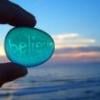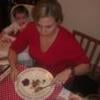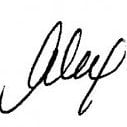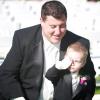Search the Community
Showing results for 'alcohol'.
Found 17,501 results
-
I meant only good carbs, I think at this stage bad carbs (refined sugars cakes chocolate ALCOHOL) shouldn't be part of are diet. In fatsecret.com the carbs come out when you log you're food in. I do agree though you need to see what your doctor recommends. As I said earlier I wouldn't recomend the bad carbs at this stage
-
hi before i was banded and reading this website i noticed there were 2 "camps". one were the people banded that weren't losing much weight. many talked about how the band wasn't working. they ate taco bell, mcdonalds, drank alot of alcohol and didnt exercise. this scared me because i thought...here i am going to have surgery and not get anywhere....YIKES!!! i then read about a group that were really focused on the totality of what is needed to be successful with the Band. these people tried to eat well nutritionally, journalled their food, exercised. when they "fell off the wagon" they caught themselves quickly and got back on the program i decided if i was having this operation i wanted to be in the second camp. it hasnt been easy.....there were times i had to jump start my program since getting surgery exercise has been key on several levels... first it helped me to make better food choices. if i spent 2 hours in the gym busting my butt...i was less likely to eat the junk that was easier for me to eat. it also helped me mentally. lastly it really helped to give shape back to my body. i do 2 total conditioning classes, 2 kickboxing and 2 spin classes a week. during cycle season i replace spin class with outside riding. i also switch it around not to get bored. i just hired a boxing trainer to replace 1 kickbox class. this has been the experience of countless people that have gone before me as well as my own experience.
-


Being banded IS the easy way out!
ouachita replied to WASaBubbleButt's topic in LAP-BAND Surgery Forums
I just tell people that I'm an addict. food is my addiction and I came to the realization that I could not lose the weight AND keep it off without help to control the constant hunger that I experienced pre-band. The band is my tool, or "crutch" if you prefer and there is nothing really easy about it because it still requires a commitment to changing my lifestyle. I also tell them, if they push the issue, that when they are in the same arena I fight in then I'll listen to what they have to say. I also point out to them that if someone were to develope a surgery that helped drug addicts, alcoholics, and smokers overcome their addictions that was equivalent in cost, safety, effectiveness, and benefit as the lap band is as a treatment for obesity, politicians couldn't pass legislation fast enough to pay for it. Then I tell them my surgery didn't cost them a dime of their tax money and means there is now just that much more food available for them and/or the poor and starving people of the world. I normally don't rant like this may sound. If the person is just curious or really uniformed and seems to be genuinely trying to learn more, I'm usually pretty diplomatic about it, even enthusiastic bordering on evangelistic at times. On the other hand, if they have displayed a particularly obnoxious attitude in pursuing the topic, I have been known to throw in, "Kiss my ass if you don't like it!" at the end. -


Splenda - What do you know?
TStew replied to AChristian's topic in POST-Operation Weight Loss Surgery Q&A
There are some really great HEALTHY sweetners! Stevia also comes in flavors so experiment a little before you write it off. You get used to it. Besides Stevia, there is: Lo Han or Liu Han (inulin) Feeds good bacteria in intestines (somewhat expensive but I've recently tried Dr. Mercola's New whey chocolate Protein bars and they were pretty damn tasty!) Yacon – Peruvian Tuber (FOS) Syrup: Amazing therapeutic properties. The body is not able to break it down as sugar and it passes through and then promotes the good bacteria in the intestines. Tastes like a cross between honey and molasses – a good, inexpensive brand is Amazon Therapeutic (brown glass jar and red label) sells for $16 for 16 oz jar (can probably find it cheaper on-line). I use this stuff a lot and I love it! I'm not a fan of honey or molasses but this stuff has a fantastic rich, sweet, taste. I use just a drop in my oatmeal and it tastes fantastic! Xylitol – Has antibacterial properties. You should always carry mints (look for Spry mints) or gum sweetened with this if you can’t brush after a meal. It’s being used more and more in foods and toothpastes and such! Very healthy and affordable! Erithratol (sp) is also antibacterial. This is a sugar alcohol so it can cause digestive upset if you eat too much. It tastes more like 'real' sugar than Splenda or any of the other artificial sweetners. You will have to do a little research to find which ones of these have high glycemic index. I know Erithratol is low but not sure about the others.... -
I'm not really sure why some doctors do 1 week vs 2 weeks but it seems to vary. Today has been a bit better so far. Broth with unflavored protein powder for breakfast and a coffee flavored shake for lunch. They told me to limit caffeine and very minimum sugar (if any). Now that it is the weekend I'm trying to decide if wine counts as a liquid since I can't have any alcohol for 6 months after[emoji3] Sent from my SM-G975U using BariatricPal mobile app
-
Thank you! I'm one of those lucky people who had to do a six month supervised diet, lol. So far I've gained 5 pounds!!! So March 2nd is my final day... I have two appointments between now and then, the cardiologist and the shrink eval, and I have to have a drug and alcohol test! From what I hear my insurance is one of the few who requires that one. :thumbup:
-
I date often and find myself in drinking situations alot. I can drink beer if I do it slow. I refuse to eliminate alcohol. I already gave up my beloved Diet Pepsi for this thing. Yeah, yeah, calories, carbonation, whatever. I drink about 2 beers a month and maybe 2 glasses of wine a month. Tried a sip of Diet Pepsi and didn't care for the taste anymore. Who would have thought? Down 40lbs since November. Size 10 jeans. (lots of stretch) Heartburn free! Christine
-
Hi Heather, Being banded does not mean you can never drink again. Yesterday I had three glasses of champagne at an Easter function. But you WILL have to learn how your body reacts to alcohol, which may be different than you were used to. Even if you haven't lost significant weight yet, drinking can affect you a lot faster just because you're taking in way fewer calories. So take it very slowly. And, of course, keep in mind that alcohol is just empty calories that pile up very quickly, so drinking at all is pretty counterproductive to weight loss.
-
Has anyone else had trouble with UTIs since having their weight loss surgery? I was sleeved approx. 1 year ago and now suffer with these more frequently than ever. Someone mentioned to me it might be my alcohol intake, another one said not enough water. Thoughts?
-
"It's a new hobby..." I like that. think of the time people spend on their pets, shopping, bird watching, cruising, wood working, pottery,...……. all kinds of hobbies that take lots of time, but bring immense joy and satisfaction to one's life. Sooooooo much better to have an exercise "addiction" than transferring to gambling, shopping sprees, alcohol/drugs. As long as you are doing it sensibly and getting pleasure (all the great endorphins from exercise instead of food!) - go for it!
-


Crohn's Disease Problems - Fat Crohnie
biginjapan replied to Mine7766's topic in General Weight Loss Surgery Discussions
I have ulcerative colitis but have never had to have any surgery regarding it. Like you, I also have inflammation issues and bone spurs in my knees and heel. Similarly, I find the foods that are "good" for most people - fruits and vegetables, nuts, whole grains, etc. give me real problems, whereas slider foods like bread, rice, pasta, fried chicken, chocolate, etc. have no problem going through my system. I always felt really frustrated that I have a disease that makes most sufferers thin, but that I am one of the outliers in being obese (although I did find an article somewhere that indicated about 30% of Crohn's/Colitis sufferers are obese). I'm on Pentasa which helps keeps things quiet and regular - but everytime I go on it I also gain weight as I can keep more of the food and nutrients "in" than without it. I'm of a similar weight to you, but since I'm shorter my BMI is 48. I'm having gastric sleeve surgery in Mexico in 5 weeks, I hope it will help with a lot of my issues. My gastroenterologist here in Japan seems to think it will help some of my symptoms, but he isn't an expert in bariatric surgery. However, the problem is my large intestine, not my stomach, so I think I'll be okay with (and research shows that WLS really helps UC sufferers - although it's more mixed with Crohn's sufferers). Sorry, I don't have any insights for you - as you probably know, people who suffer from Crohn's/UC can be affected by different foods (and stress and other factors). However, I've tried a few things in the past couple of years, and here's what I've discovered (for me anyway): -symptoms are usually worse when I'm having my period -alcohol often aggravates symptoms -although I eat a lot of protein (fish, chicken), too much beef can be problematic (I don't eat much pork other than bacon) -I tried going gluten-free for a while (with real food, not "gluten-free" products from stores) and my symptoms pretty much disappeared after one day. It was amazing. I kept going to the bathroom and sitting on the toilet waiting for something, anything to happen, and nothing did. So clearly I have some level of gluten intolerance that makes things worse. That only lasted a month though. -Any gassy vegetable is off-limits for me, which sucks, since in Japan almost all salads are made with cabbage, which makes it impossible for me to buy a salad anywhere. Broccoli, beans, cauliflower, eggs (sometimes), etc. plus other veggies like carrots, potatoes, daikon (a kind of radish), peas are all problems. Raw is definitely out, but I can handle most cooked veggies (other than the gassy ones). -I've also developed allergies to a lot of (raw) fruits and vegetables in the last 5 years. I don't know how connected that is, but my last gastroenterologist (who was fantastic - I miss him) was very much of the opinion that allergies are very common to sufferers of C/UC. -I love spicy food but it's just not worth it anymore. -

Are You Considering Weight Loss Surgery? Be Prepared for Discrimination Against Obesity to Continue!
Alex Brecher posted a magazine article in Pre-Op Support
Without a doubt, obesity is stigmatized. The unfair bias that you face may be a major factor in your decision to consider or get weight loss surgery. Unfortunately, you will probably find that the obesity discrimination continues even as you try to use weight loss surgery to get healthy. Obese patients are blamed for their conditions, healthcare providers are not always sympathetic, and coverage for weight loss surgery is not guaranteed. Why Do Obese Patients Get So Much Blame? People are increasingly sympathetic to diseases that used to be stigmatized. Examples include cancer, many mental health conditions, and sexually transmitted diseases such as HIV/AIDS and syphilis. Now, treatment for these and other conditions, such as diabetes, is widely accepted as normal and an entitlement. Each of these conditions is largely the result of lifestyle choices, such as diet, use of tobacco and/or alcohol, sexual behavior, and physical activity levels. More than 80% of cancers are likely the result of lifestyle choices. Ironically, though, many people in our society remain unsympathetic to obese people. They are quick to blame obese people for having no self-control, for refusing to follow a diet, and for not wanting to be healthy. You know, though, that those accusations are far from the truth. If you are considering weight loss surgery, you are confident that you have the self-control for the weight loss surgery diet, that you have tried to follow numerous diets but none have worked for you, and that you desperately want to be healthy! You Did Not Ask to Be Obese: Some Factors are Outside of Your Control More than one-third of American adults are obese, and another third are overweight. That in itself should remind you – and the people who judge you harshly – that fighting obesity is hard! The food environment includes fast food, vending machines, restaurants, food-focused social gatherings, and inexpensive snack foods. There are also biological and family factors that you cannot control. Skinny people have no idea that you may be feeling extreme hunger all day, every day, or that your metabolism may be slower. Your family might have raised to choose high-calorie, high-fat foods, or even driven you into unhealthy emotional eating. Research shows that some obese patients’ brains even respond differently to food compared to lower-weight individuals. Obese individuals, for example, tend to get less pleasure out of food, meaning they need to eat more to get satisfied. Furthermore, high-calorie foods like sugar can be addicting, leading to the same brain responses as cocaine does. But nobody blames cocaine addicts for their situations! Instead, they encourage counseling and intensive program to help them overcome their addictions, not punish them. Discrimination in Obesity Treatment: A Look at Weight Loss Surgery Versus Dialysis Just as unfair is the fact that the healthcare system continues the discrimination against obesity. Compare weight loss surgery as an obesity treatment with dialysis as a treatment for kidney failure (end-stage renal failure). Far from being blamed for their conditions, kidney failure patients who need dialysis are provided the respect that all people deserve and the medical care that they need. Dialysis patients of all ages in the United States are able to apply for Medicare, the government’s health insurance program normally reserved for older adults. Dialysis treatments can cost about $40,000 per year, not including This is not to mention human factors such as reduced quality of life (the vast majority of dialysis patients are too sick to work) and early death (the life expectancy of dialysis patients is about 5 years). In comparison, a typical weight loss surgery procedure in the United States can cost $20,000 to $40,000, although it can be less, and successful patients are healthier and have more energy than before surgery. The irony increases. The fact is that kidney failure usually results as a complication of type 2 diabetes or high blood pressure (hypertension). Both of these conditions are often caused by obesity; losing weight after weight loss surgery can prevent, eliminate, or reduce these conditions. In addition, it takes years for kidney failure to develop once you have high blood pressure or diabetes – years during which patients are likely to be on costly medications and inconvenient treatments. Targeting obesity through weight loss surgery could prevent cases of diabetes and high blood pressure, reduce their effects in people who already have them, and prevent kidney failure, the need for dialysis, and early death. Searching for Fairness in the Medical Treatment of Obesity Your first barrier in your path to weight loss surgery may be your primary care physican (PCP). Some PCPs do not know much about weight loss surgery, or may be against it because they think obesity is your fault. Some PCPs take a narrow view of obesity, and feel that the only way to lose weight is for patients to “decide they want it badly enough” and “just eat less.” You already know that doesn’t work, so don’t let your PCP discourage you from learning more weight loss surgery if you think it might be the solution to your obesity struggles. Insurance coverage has improved for obesity treatments, especially for weight loss surgery. Medicare and many private healthcare coverage plans cover weight loss surgery if you meet their predetermined weight and/or health criteria. Some private insurance companies, though, take a short-term view because they want to make profits within 3 years. Since most weight loss surgeries do not pay for themselves within 3 years, some private insurers do not cover weight loss surgery despite the likelihood that they would pay for themselves within 5 or 10 years, and in addition improve your health and quality of life. Chance of Reduced Discrimination in the Future? The majority of Americans believe that health insurance should cover weight loss surgery, in addition to other obesity treatments such as dietetic and mental health counseling. The Affordable Care Act (“Obamacare”), though, is not the ultimate solution. In nearly half of states, obesity treatments are not required to be covered by plans sold on the health exchanges. This determination is based on the available competitive services in the region. Since the most obese states are the ones least likely to have competitive anti-obesity care, these states are also least likely to have obesity treatments covered under the Affordable Care Act. Overcome the Discrimination Discrimination is an unfair fact of life as an obese individual, and it unfortunately does not end when you decide to get healthy using weight loss surgery as a tool. These are some of the ways that you can keep going strong and overcome the barriers you encounter as you work to get healthy. You have the right to a second opinion if your primary care physician recommends against weight loss surgery but you would like to find out more. Do not take “no” for an answer from your insurance company if you know you are entitled to reimbursement for surgery. Do not listen to negative family members or friends who do not understand your obesity or interest in weight loss surgery. It is your life and health. Educate others as much as you can to try to reduce the discrimination. Chances are that they are only being discriminatory out of ignorance, not out of true mean-spiritedness. Like it or not, some discrimination remains as you go through your weight loss journey. You cannot prevent it, but you can change how you react to it. Expect it and respond as positively as you can, keeping your own health and goals in mind. Over time, as you and others prove that weight loss surgery can be a worthwhile treatment for obesity, discrimination by insurance companies, healthcare providers, and the public will decrease. -
Congratulations on getting started!!! I have lost 28.5 since my surgery on May 21. I was prepared I would lose slower since my bmi was 35 day of surgery.. I remember the closer I am to goal the slower it comes off.. I'm happy with the 28.5 praying it keeps going down lol Really still loving the bypass! So far the only issue I have had is with hard alcohol I tried some vodka and yeah my tummy revolted lol Can hardly wait to hear about your surgery date!
-


Stories we tell...how do you not "lie" without saying you had WLS?
Tiny One replied to Slurpee_girl's topic in Weight Loss Surgery Success Stories
I tell them I'm eating healthier, smaller portions, gave up drinking beer & all alcohol except wine. I also tell them that I'm in the gym at 5 am 4 days a week & have a personal trainer. All true, I just don't mention the surgery part because its personal. -
Well, I do not drink at all, but as far as never having beer again ... I don't believe VSG is a death sentence to enjoying an occasional brew. My Dr told me no alcohol for the first 6 months, and you'll read postings on here from folks saying they are just empty calories. Well, if we made a list of all the foods we still do eat which are empty calories, I would need a larger monitor to see them all. Much larger. Then, of course, there is the carbonation factor. Going on 3 years out, I enjoy the occasional root beer or a few sips of Sprite. The carbonation definitely restricts the size of gulps I can take, but I still enjoy them. But, back in the day when I did drink, as I recall, a nice porter or stout didn't have the carbonation of the lagers. I would think a Guinness on occasion would fill the need. I'm sure @@Madam Reverie would agree.
-


The good, bad and the ugly. CARBS!
jess9395 replied to heycrystal2052's topic in Gastric Sleeve Surgery Forums
I'm in maintenance and also run 20-30 miles per week and do yoga 5-6 hours. I still limit my refined carbs, but between dairy, fruit, veggies, beans and the occasional sweet potato I get about 120-140 carbs per day. I do allow myself refined carbs once a week or so in limited amounts. In the weight loss phase I kept to 30-40 per day and almost all was dairy. "Net carbs" is total carbs - fiber -sugar alcohols (not processed by the body) I always counted net carbs and still do. -
For me it's not as much the cost as it is the inconvenience. I live 20 minutes from the closest store and order most of my goodies online. When my grown kids or grandkids come over and raid my stash I'm screwed until I either make a trip to the store or place an order! I feel horrible, but I have started hiding my food, inside canisters, under my bed, in the back of my closet. I feel like an alcoholic or a drug addict.
-
I don't drink alcohol, so I can't comment on not feeling well, but my surgeon doesn't recommend that bariatric patients drink alcohol for that very reason. We metabolize the alcohol very quickly. Sent from my SM-N960U using BariatricPal mobile app
-
I can get drunk and sober several times in one night. Sometimes I’m drunk off 1 drink but I sober up in a crazy fast rate. Keep most of my drinks low in alcohol sugars and diet or calorie free mixers. Addiction transfer is real. My sister is in AA and my uncle was a hardcore drunk so I’m mindful. Luckily, zero issues with my drinking habits. I was actually sober from 2007 (17) until 2012. I didn’t really NEED it but I was going through a weird time as I became bipolar. Once I got that sorted and took an addition class at UCLA I realized I’m a normie!
-


Popsicle warning for those newly sleeved
Mike4132 posted a topic in POST-Operation Weight Loss Surgery Q&A
My doc recommended sugar free Popsicles to help hydrate post op but I've found that most brands have sugar alcohol in them. I stopped eating them yesterday and gas pains have been greatly reduced. ( sugar alcohols cause gas in many people) If you are recently sleeved, eating SF Popsicles and can't get rid of gas, sugar alcohol may be contributing to some of it. It seemed to be for me. -
I found experimentation to be the best thing. An egg mixes well with tuna and makes a nice patty with a little olive oil. Sprinkle some salt on it and u have a crispy tuna patty - tons of protein too. Maybe some crab meat? Shrimp sautéed in a little butter and seasoned well? Salmon patties? Chicken salad? It's not the meat that won't sit well, it's the DRY meat. Add some moisture with butter, gravy, etc. make it more medium than well done. The point behind no corn or enriched flower the first couple months in the more successful programs is because our bodies NEED protein and theirs ZERO need for enriched flour and corn. Some of these programs around are nothing more than herding fat people thru a turnstile and knowing they will be back for revisions. Do some research. Don't eat enriched flour or corn. Don't drink alcohol, etc etc. Make smart decisions.
-


Do you talk to your Nutritionist?
sparkles1971 replied to mggriffin's topic in Gastric Sleeve Surgery Forums
I agree! Same goes with alcohol. Each drink is loaded with empty calories. My torture the poor pouch like that, and sabotage your success? Some foods are slippery slopes, but a lot think this surgery will fix everything. People still need to retrain the brain for success. -


All Dr. Garcia's Sleeved Patients, Please Give Your Weightloss Amounts And Timeframes.....thanks!
muffintop replied to Diamondeyed's topic in Mexico & Self-Pay Weight Loss Surgery
Six months was just yesterday. Started out 220, now 153. It's 68 lbs down. I can eat just about anything except salmon. I do also have alcohol which slows my weightloss. I do miss my taste buds but am glad of my decision! And when I say eat anything, I mean like two or three bites, excellent restriction! -


Who has had the sleeve? How did you do? Pros and cons? Would you do it again?
NewMeDay replied to HMA's topic in Gastric Sleeve Surgery Forums
I am 5 days post-op sleeve. I was originally approved 1 year ago and cancelled surgery about 3xs for various reasons (fear, wanting lose weight on my own, timing at work, etc). Hwevr, I attended many free support group meetings facilitated by the program RD offered by my hospital so that I could get first hand knowledge and learn tips and strategies. This helped sooo much! The 1st couple of days in the hospital post-op was a little rough, but nothing unbearable. I also had a haitial hernia that I was unaware of that my surgeon repaired during the surgery, which Ive learned is very common for wls patients. Since coming home, I have had a lot of diarrhea, but Ive learned that many sugar-free things, including a couple of the bariatric vitamins have sugar alcohols (sorbital, sucralose, etc) that does not agree with my system. Im in the full-liquid stage til next week and today was the first day w/out diarrhea bec my RD said to start full-liquids and include hot cereals and yogurt (cream of wheat, grits, etc), which stopped it completely. I know im a post-op newbie but I have no regrets at all so far. Physically, my knees no longer hurt and I already have a diff kind of energy than before surgery that is a great feeling. I have no desire for sweets or fried foods or anything unhealthy. It may be bec im still sore and jst trying to get all of my basic proteins and fluids in, but I feel much better knowing that im finally on the other side of my wl journey [emoji4] -
An interesting summary of the 'state of research'. I normally post a link, but that does not work. So here is the full thread. Full disclosure, I drink coffee, and my program does NOT like that. I really DO follow my program in most things, but coffee is the ONLY drug I've got left... _____ Dear Ontherighttrack, You’ve asked a great question. What is the effect of caffeine on sleeve gastrectomy? To answer your question, I did a search of the medical literature on PubMed, the index for the National Medical Library. I couldn’t find any articles that address your question directly. Incidentally, there were no articles that addressed the effect of caffeine on gastric bypass either. Next I searched for both sleeve gastrectomy and gastric bypass and coffee. Again the medical library search engine did not return any articles. Thus, so far there have been no studies performed on sleeve gastrectomy patients or gastric bypass patients that would permit or discourage caffeine or coffee use. Most surgeons recommend that gastric bypass and sleeve gastrectomy patients avoid caffeine or coffee. These recommendations stem from research work that has been done on non-weight loss surgery patients. Before looking into this further let’s distinguish between caffeine and coffee. Caffeine is an alkaloid chemical that has stimulant effects on the central nervous system as well as other parts of the body. Caffeine is a moderate stimulant of gastric acid production. In some studies it has been shown to decrease lower esophageal sphincter pressure and thus potentially promote reflux. In other studies, the effect on sphincter pressure is not so clear. Coffee is brewed from the coffea plant. Coffee contains numerous biologically active chemicals including caffeine. The degree to which these compounds are present in a given cup of coffee depends on the specific species of coffee plant as well as the roasting and processing methods used to bring the coffee to market (see article by Van Deventer below). Even the type of filter used in a coffee maker will change the types of plant oils that remain in the brew. Gastroesophageal reflux (GERD or GORD) is reflux of stomach juices into the esophagus. GERD can cause heartburn. There are several full medical articles attached at the bottom of this reply. Please download these for further information. Coffee/caffeine and gastric acid stimulation There is general agreement that caffeine and coffee are two factors that stimulate stomach acid production. According to Cohen and Booth (1975) “Decaffeinated coffee gave a maximal acid response of 16.5 per hour (mean)which was similar to that of regular coffee, 20.9 mEq per hour, both values being higher than that of caffeine, 8.4, on a cup-equivalent basis.” Thus there are chemicals in coffee aside from caffeine that have potent acid stimulatory effects. In this study, decaffeination did not reduce acid stimulation. Further information about decaffeinated coffee was put forth by Feldmen et. Al (1981): “At equal concentrations, decaffeinated coffee was a more potent stimulant of acid secretion and of gastrin [an acid stimulating gut hormone] release than peptone [a Protein meal acid stimulus]. The ingredient(s) of decaffeinated coffee that accounts for its high potency in stimulating acid secretion and gastrin release has not been identified.” Coffee, caffeine, and esophageal reflux There is considerable controversy in the medical literature as to the effects of coffee and caffeine on esophageal reflux. Here are the conclusions to three articles on the subject. The full article summaries are added below. Wendl (1994) writes, “Coffee, in contrast to tea, increases gastro-oesophageal reflux, an effect that is less pronounced after decaffeination. Caffeine does not seem to be responsible for gastro-oesophageal reflux which must be attributed to other components of coffee.” Boekema (1999) and associates came to an opposite conclusion: “Coffee has no important effect on gastro-oesophageal acid reflux in GORD [GERD] patients, and no effect at all in healthy subjects.” Zheng (2007) conludes, “In conclusion, this large monozygotic co-twin study provides evidence that BMI, tobacco smoking and physical activity at work facilitate the development of GER, while physical activity at leisure time appears to be a protective factor. The association between BMI and frequent GER symptoms among men may be attenuated by genetic factors. In addition, heavy coffee intake may be a protective factor of GER in men and lower education may be a potential risk factor in women.” CONCLUSIONS Caffeine, and more so, coffee and decaf coffee stimulate gastric acid production. Caffeine and coffee may promote gastroesophageal reflux. Caffeine and coffee are just two of many factors that promote gastric acid production and gastroesophageal reflux. Clinical Implications: For sleeve patients who suffer from gastroesophageal reflux, it is best to avoid caffeine and coffee. For sleeve patients who do not have reflux, I do not see any reason not to enjoy coffee or use caffeine products in moderation. For gastric bypass patients, most surgeons recommend against caffeine and coffee because the acid stimulation that occurs may contribute to the development of anastomotic ulcers. Since there are many other factors involved in the development of these ulcers (alcohol, cigarette smoking and nicotine, and NSAID drugs), it is impossible to know how important the role of coffee and caffeine is. Most surgeons are thus saying avoid coffee and be “better safe than sorry.” REFERENCES Good Water, sports drink, and sports drink with caffeine. drinks for gastric pH and reflux during the preexercise, the cycling, and the postexercise episode, respectively. Gastric emptying, orocecal transit time, and intestinal permeability showed no significant differences between the three trials. However, glucose absorption was significantly increased in the CES + caffeine trial compared with the CES trial (P = 0.017). No significant differences in gastroesophageal reflux, gastric pH, or gastrointestinal transit could be observed between the CES, the CES + caffeine, and the water trials. However, intestinal glucose uptake was increased in the CES + caffeine trial. ___________________________________________________________________ lunch, 1 h after dinner and after an overnight fast Reflux and oesophageal motility parameters were assessed for the first hour after each coffee or water intake. RESULTS: Coffee had no effect on postprandial acid reflux time or number of reflux episodes, either in GORD patients or in healthy subjects. Coffee increased the percentage acid reflux time only when ingested in the fasting period in the GORD patients (median 2.6, range 0-19.3 versus median 0, range 0-8.3; P = 0.028), but not in the healthy subjects. No effect of coffee on postprandial lower oesophageal sphincter pressure (LOSP), patterns of LOSP associated with reflux episodes or oesophageal contractions was found. CONCLUSION: Coffee has no important effect on gastro-oesophageal acid reflux in GORD patients, and no effect at all in healthy subjects. _______________________________________________________________________ beverages and of their major component, caffeine, have not been quantified. The aim of this study was to evaluate gastro-oesophageal reflux induced by coffee and tea before and after a decaffeination process, and to compare it with water and water-containing caffeine. METHODS: Three-hour ambulatory pH-metry was performed on 16 healthy volunteers, who received 300 ml of (i) regular coffee, decaffeinated coffee or tap water (n = 16), (ii) normal tea, decaffeinated tea, tap water, or coffee adapted to normal tea in caffeine concentration (n = 6), and (iii) caffeine-free and caffeine-containing water (n = 8) together with a standardized breakfast. RESULTS: Regular coffee induced a significant (P < 0.05) gastro-oesophageal reflux compared with tap water and normal tea, which were not different from each other. Decaffeination of coffee significantly (P < 0.05) diminished gastro-oesophageal reflux, whereas decaffeination of tea or addition of caffeine to water had no effect. Coffee adapted to normal tea in caffeine concentration significantly (P < 0.05) increased gastro-oesophageal reflux. CONCLUSIONS: Coffee, in contrast to tea, increases gastro-oesophageal reflux, an effect that is less pronounced after decaffeination. Caffeine does not seem to be responsible for gastro-oesophageal reflux which must be attributed to other components of coffee. Angeles, California. Abstract This study tested the hypothesis that differences in the processing of raw coffee Beans can account for some of the variability in gastric effects of coffee drinking. Coffees were selected to represent several ways that green coffee beans are treated, ie, processing variables. These included instant and ground coffee processing, decaffeination method (ethyl acetate or methylene chloride extraction), instant coffee processing temperature (112 degrees F or 300 degrees F), and steam treatment. Lower esophageal sphincter pressure, acid secretion, and blood gastrin was measured in eight human subjects after they consumed each of the different coffees. Consumption of coffee was followed by a sustained decrease in lower esophageal sphincter pressure (P less than 0.05) except for three of the four coffees treated with ethyl acetate regardless of whether or not they contained caffeine. Caffeinated ground coffee stimulated more acid secretion that did decaf ground coffees (P less than 0.05), but not more than a steam-treated caffeinated coffee. Instant coffees did not differ in acid-stimulating ability. Ground caffeinated coffee resulted in higher blood gastrin levels than other ground coffees (P less than 0.05). Freeze-dried instant coffee also tended toward higher gastrin stimulation. It is concluded that some of the observed variability in gastric response to coffee consumption can be traced to differences in how green coffee beans are processed. __________________________________________________________________________________ JAMA. 1981 Jul 17;246(3):248-50. Gastric acid and gastrin response to decaffeinated coffee and a peptone meal. Feldman EJ, Isenberg JI, Grossman MI. Abstract We compared five graded doses of decaffeinated coffee and a widely used protein test meal (Bacto-peptone) as stimulants of acid secretion (intragastric titration) and gastrin release (radioimmunoassay) in eight healthy men. In each subject, for both acid and gastrin, the sums of the responses to all five doses were greater to decaffeinated coffee than to peptone. The mean +/- SE peak acid output in millimoles per hour was 18.5 +/- 2.9 to decaffeinated coffee and 14.7 +/- 2.7 to peptone, representing 70% and 55%, respectively, of the peak acid output to pentagastrin. The mean +/- SEM peak increment over basal rate in serum gastrin in picograms per milliliter was 84.8 +/- 4.4 to decaffeinated coffee and 44.8 +/- 2.1 to peptone. At equal concentrations, decaffeinated coffee was a more potent stimulant of acid secretion and of gastrin release than peptone. The ingredient(s) of decaffeinated coffee that accounts for its high potency in stimulating acid secretion and gastrin release has not been identified. ___________________________________________________________________________________ Dis Esophagus. 2006;19(3):183-8. Effect of caffeine on lower esophageal sphincter pressure in Thai healthy volunteers. Lohsiriwat S, Puengna N, Leelakusolvong S. Source Department of Physiology, Faculty of Medicine, Siriraj Hospital, Mahidol University, Bangkok, Thailand. sislr@mahidol.ac.th Abstract Caffeine affects many aspects of body function including the gastrointestinal system. A single-blinded experimental study was performed to evaluate the effect of caffeine on lower esophageal sphincter (LES) and esophageal peristaltic contractions in healthy Thai adults. The volunteers were six men and six women aged 19-31 years. Subjects drank 100 mL of water. Five wet swallows were performed 30 min after the drink. The basal LES pressure was continuously measured using esophageal manometric technique. They then consumed another 100 mL of water containing caffeine at the dose of 3.5 mg/kg body weight. The swallows and basal LES pressure monitoring were repeated. The results showed no change in basal LES pressure after a water drink while caffeine consumption significantly lowered the pressure at 10, 15, 20 and 25 min. The mean amplitude of contractions and peristaltic velocity were decreased at the distal esophagus at 3 and 8 cm above LES. The mean duration of contraction was decreased at the distal part but increased at the more proximal esophagus. The heart rate, systolic and diastolic blood pressures were increased significantly at 10-20 min after caffeine ingestion. This study indicated that caffeine 3.5 mg/kg affected esophageal function, resulting in a decrease in basal LES pressure and distal esophageal contraction, which is known to promote the reflux of gastric contents up into the esophagus. N Engl J Med. 1975 Oct 30;293(18):897-9. Gastric acid secretion and lower-esophageal-sphincter pressure in response to coffee and caffeine. Cohen S, Booth GH Jr. Abstract Caffeine stimulates gastric acid secretion and reduces the competence of the lower esophageal sphincter in man. These effects of caffeine have been used as evidence that regular coffee should not be used by patients with peptic-ulcer disease or gastroesophageal reflux. We compared the dose-response relations of caffeine, regular coffee and decaffeinated coffee for gastric acid secretion and sphincter pressure in normal subjects. Decaffeinated coffee gave a maximal acid response of 16.5 +/- 2.6 mEq per hour (mean +/- S.E.M.), which was similar to that of regular coffee, 20.9 +/- 3.6 mEq per hour, both values being higher than that of caffeine, 8.4 +/- 1.3, on a cup-equivalent basis. Sphincter pressure showed minimal changes in response to caffeine, but was significantly increased by both regular and decaffeinated coffee (P less than 0.05). These data suggest that clinical recommendations based upon the known gastrointestinal effects of caffeine may bear little relation to the actual observed actions of coffee or decaffeinated coffee.
















